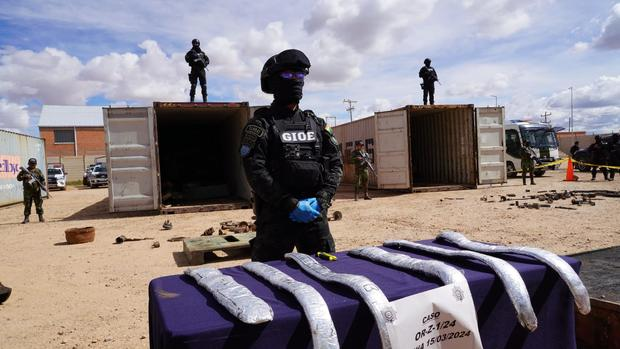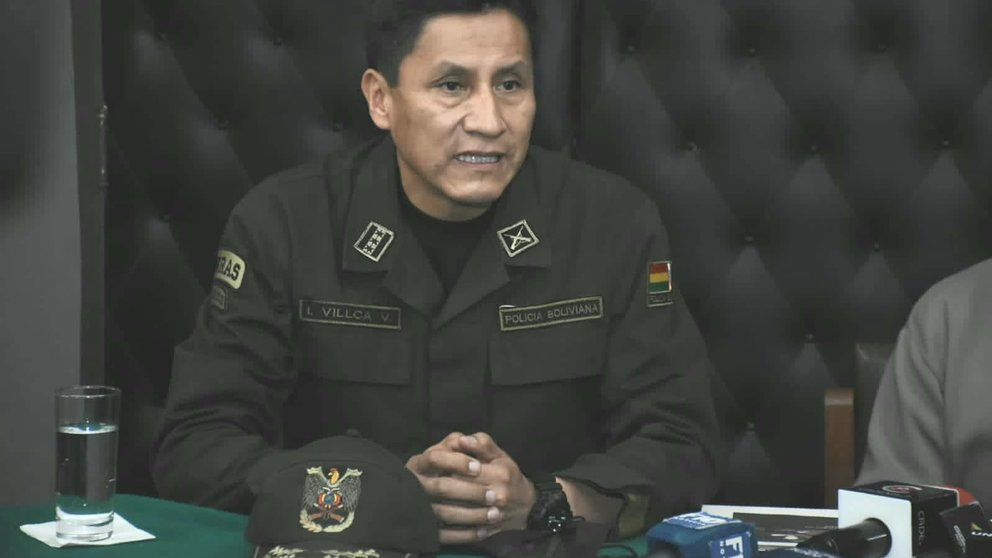Bolivian police seized over seven tons of narcotics over the weekend in the highland region of Pisiga, which borders Chile. Two trucks were utilized by the smugglers in order to transport the narcotics, with authorities believing their final destination was Belgium, one of Europe’s key drug ports.
A Record Bust:
Interior Minister Eduardo del Castillo stated that the drugs were estimated to be worth nearly a half million in US dollars in street value when the destination was taken into account.
“Upon reviewing the merchandise, which was inside the vehicles, it was determined that the load of two containers was contaminated with controlled substances,” del Castillo stated on Monday. “Police officers realized that the merchandise had unusual characteristics and proceeded to drill it to discover cocaine.”

While the operation to arrest suspected drug smugglers had been drafted for months leading up to the bust, operations only commenced through the weekend when the seizure was first reported by officials.
The head of the Special Forces to Fight Drug Trafficking (FELCN), Ismael Villca, stated that the owner of the narcotics had escaped from authorities, fleeing to the United States before police could apprehend him. Villca placed the blame firmly on the shoulders of a prosecutor from Oruro who allegedly released photographs of the operation, which Castillo claimed allowed the suspect to evade capture.
“According to the data they have provided us, on television, (the prosecutor) made known some very important aspects of the investigation, but mainly photographs where you can see certain details of this investigation,” Villca stated.

However, the Public Ministry denied any leak from the government. The prosecutor of Oruro, Aldo Morales, stated that “there has been no leak. The operation was carried out on March 14 at 8:45, and the information was given on March 15 at 10:00 p.m. It is more than 36 hours after the Public Ministry has informed society,” said Aldo Morales, departmental prosecutor of Oruro.
The Public Ministry went on to state that the operation was common knowledge among the populace of Pisiga, with both police and customs officials holding knowledge of the operation.
This raid is Bolivia’s second largest in regards to narco trafficking, with the largest having seized over 9 tons of cocaine in January. Some analysts believe this recent trend can be attributed to Bolivia’s leftist president, Luis Arce, who has held office since November 2020.
Analysis:
Operations against drug production and trafficking are vital for Bolivia’s future, as the South American country has quickly become one of the world’s leading exporters of cocaine.
Previously, Bolivia was only known for its role as a key trafficking hub into Chile and Brazil, as well as for the cultivation of cocoa leaves, a key ingredient in cocaine. However, through a series of political moves, the increase in demand for narcotics in neighboring countries, and crackdowns on narcotics production in countries such as Colombia, Bolivia has become a new production center for cocaine in South America.
This can be seen with the large quantities of cocaine seized in Bolivia, with numbers increasing every year. Data from Bolivian authorities has documented a 62% increase in cocaine seizures between the years 2022 and 2023.
Without proper action by Bolivian authorities, the country is sure to see a steep rise in crime and narco-gangs, which will certainly lead to a similar security situation as in El Salvador prior to President Bukele’s ascension to power or in Colombia’s ongoing fight against drug trafficking.


